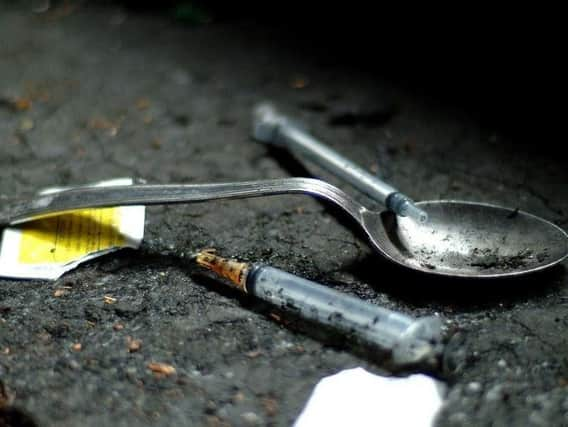Children used by drugs gangs are factor in rising modern slavery figures, says National Crime Agency


Last year, for the first time, UK nationals made up the highest volume of cases passed to a scheme set up to identify children and adults are at the mercy of slave drivers and traffickers.
Investigators said the development was partly driven by a jump in referrals relating to children who are exploited by drug gangs.
Advertisement
Hide AdAdvertisement
Hide AdA total of 819 UK citizens were flagged to the National Referral Mechanism (NRM) last year, more than double the 326 referred in 2016.
The National Crime Agency (NCA), which compiled the figures, said the increase in British numbers was largely due to a 66 per cent rise in minors referred to the NRM as suspected victims of labour or sexual exploitation.
This was partly down to an uptick in referrals linked to a drug distribution model known as “county lines”, cases of which are recorded as labour exploitation.
It typically involves city gangs branching out into county or coastal towns to sell heroin and crack cocaine, deploying children and vulnerable people as couriers to move drugs and cash between the new market and urban hubs.
Advertisement
Hide AdAdvertisement
Hide AdIn total 5,145 potential victims of slavery or trafficking were submitted to the NRM in 2017, up 35 per cent on the previous year when there were 3,804 referrals.
“However, it also adds further evidence to our view that the figures almost certainly represent an underestimate of the true scale of slavery and trafficking in the UK.”
He warned authorities are dealing with an “evolving threat” as criminals go into “online spaces” to enable their offending.
Mr Kerr said: “We are also seeing increasing crossovers between slavery and organised immigration crime outside the UK.
Advertisement
Hide AdAdvertisement
Hide Ad“Often the same criminal networks are involved in transportation, and migrants themselves are vulnerable to labour and sexual exploitation during their journeys and after. Particularly concerning to us is the rise in young people being exploited for sexual purposes or drug trafficking.”
The NRM is a framework for identifying victims of human trafficking and modern slavery, such as those subjected to sexual exploitation, forced labour or domestic servitude.
Possible cases are referred to specialist units in the NCA or Home Office, but not all those referred go on to be assessed as modern slavery victims.
Meanwhile, a separate report also published today reveals that the number of modern slavery operations being carried out by police at any one time has tripled, from 188 in December 2015 to 568 last month.
Advertisement
Hide AdAdvertisement
Hide AdDevon and Cornwall Chief Constable Shaun Sawyer, the national policing lead for modern slavery, said: “It means police are identifying more victims of modern slavery than ever before, ensuring they get the support they need and exploitation is stopped.”
Victoria Atkins, Home Office minister for crime, safeguarding and vulnerability, said: “Modern slavery and trafficking are despicable crimes which see some of the most vulnerable people in society targeted by ruthless predators.
"These figures show that more potential victims are being identified and protected thanks to a greater awareness and improved understanding of modern slavery.”
